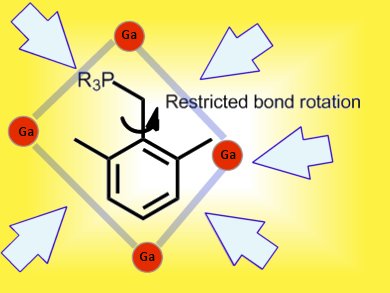Supramolecular host molecules can trap guests within them. US chemists have probed the effect of changing solvent pressure on the caged molecules to help them fine-tune the physical properties of the host-guest complex.
Kenneth Raymond, University of California, Berkeley, USA, and colleagues have used high-pressure nuclear magnetic resonance (NMR) spectroscopy to investigate the flexible cavity of a gallium complex that can trap small organic molecules such as substituted benzyl phosphonium guests. Increasing the pressure on the bulk solvent up to 150 megapascals affects how easily the guest can rotate within the host cavity. The precise effect depends on whether the solvent being used is water, methanol, or dimethylformamide.
Such research will not only help in fine tuning catalytic complexes but also offer a novel perspective on how enzymes, which act as hosts for their substrate guests, work.
- Solvent and Pressure Effects on the Motions of Encapsulated Guests: Tuning the Flexibility of a Supramolecular Host,
Jeffrey S. Mugridge, Achim Zahl, Rudi van Eldik, Robert G. Bergman, Kenneth N. Raymond,
J. Am. Chem. Soc. 2013.
DOI: 10.1021/ja309949q




